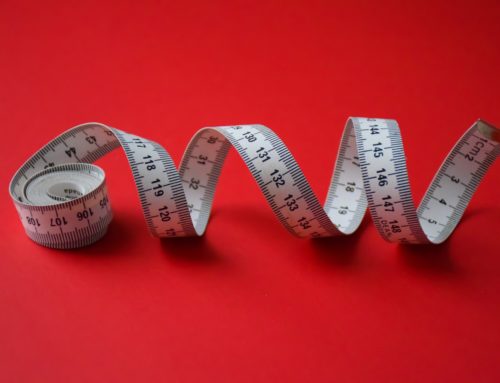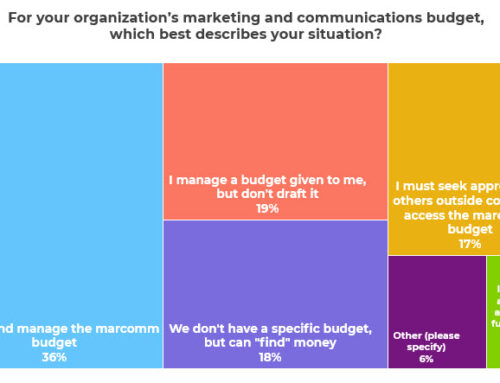If you are feeling overworked or stressed out, someone will probably give you the advice to eliminate the word “should” from your vocabulary.
“Should” applied to past things that didn’t get done induces guilt and depression.
“Should” applied to the future activities creates anxiety and stress.
While we often hear this advice in the context of people feeling bad about piles of laundry, kids getting too much screen time, or eating or drinking too much of the “wrong” things, today I want to apply this advice at work.
Measuring marketing and communications results is one of the top “shoulds” we need to talk about. In the long list of things that communications directors “confess” to me that they aren’t doing and they feel guilt, anxiety, and stress over, measuring their marketing and communications work is right up there near the top.
I should check Google Analytics regularly, but . . .
I should split-test subject lines for our email campaigns, but . . .
I should track our social media engagement, but . . .
Here’s how to fix those statements: Change should statements like this to “could if we wanted to know . . .(insert meaningful objective here).”
I
shouldcould check Google analytics regularly,butif we wanted to know if the new blogging schedule is bringing significantly more traffic to the website.
I
shouldcould split-test subject lines for our email campaigns,butif we wanted to know which keyword combinations created the most opens or clicks.I
shouldcould track our social media engagement,but. . . if we wanted to know whether video posts really do create significantly more engagement like everyone else seems to think they do.
Now we are getting somewhere, rather than tracking for the sake of tracking or worrying about the hundreds (yes, literally hundreds) of metrics that are available for your website, email, and social media campaigns.
Your strategic challenge is not about measuring per se, but about filling in what comes after “if we wanted to know . . . “ The measuring part is relatively easy once you complete the sentence. Then, of course, it’s also good to know what you would do with that newfound knowledge. Would it change the way you do anything?
Helping you make these decisions is the center of our July webinars on Measuring the Effectiveness of Your Communications Work.






